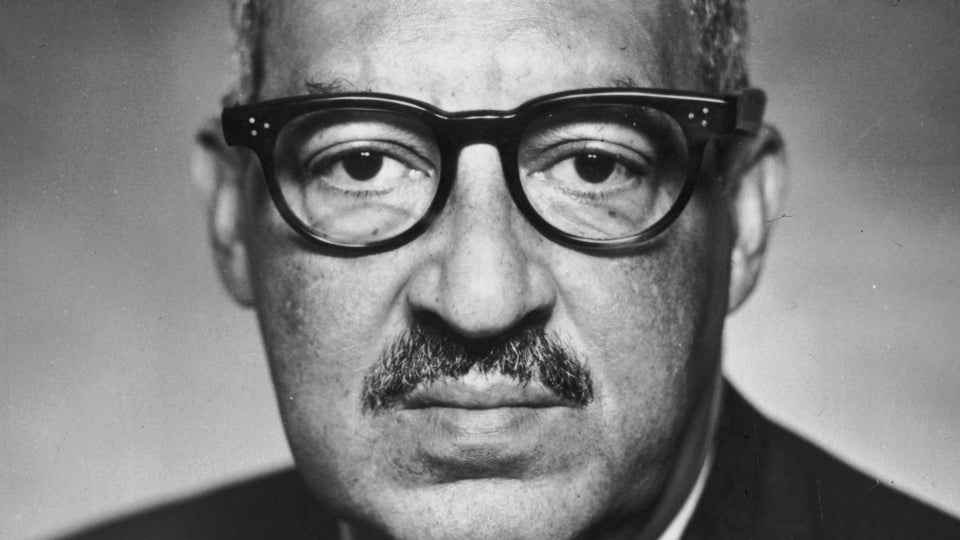House Passes Bill to Install Sculpture of Thurgood Marshall in Capitol, Replacing Supreme Court Justice Behind Racist Dred Scott Decision
The House of Representatives has passed legislation that, if enacted, would remove images tied to slavery, segregation, and sedition from the U.S. Capitol complex.
Among its provisions, the bill would take down the bust of former Chief Supreme Court Justice, Roger B. Taney, who in 1857 wrote the majority opinion in the landmark Dred Scott case, which held that Black Americans were not U.S. citizens and upheld the notion that Black people “had no rights which the white man was bound to respect.”
Replacing Taney’s likeness would be a bust of Thurgood Marshall, the legendary civil rights lawyer and the nation’s first Black Supreme Court Justice.
H.R. 3005, sometimes called the `Remove Hate’ bill, was re-introduced in May by House Majority Leader Steny Hoyer (D-MD) along with co-sponsors such as Rep. Barbara Lee (D-CA) and Majority Whip, James Clyburn. The measure passed the House on June 29, 2021 by a vote of 285-120.
“Even though we cannot change our history, we can work to affirm the ideals that our country was built on: justice and equality for all,” said Rep. Hoyer in a statement. “Symbols of slavery and segregation denigrate our Capitol and have no place here. Individuals who worked to enshrine or perpetuate the bondage of African Americans, or prevent them from achieving full and equal rights, are not worthy of being honored in our country.”
Rep. Joyce Beatty, chair of the Congressional Black Caucus (CBC) was among the bill’s lead sponsors, as were Reps. Karen Bass (D-CA). G.K. Butterfield (D-NC), Bennie Thompson (D-MS) and other caucus members. Beatty wielded the gavel while serving as Speaker Pro Tempore during debate of the legislation on the House floor.
“Hate has no place in society, let alone the Halls of Congress, and I am proud that my House colleagues reaffirmed that fundamental principle,” said the Congresswoman.
Rep. Clyburn agreed. “I often think of the Hall of Congress as America’s classroom, and, we ought to teach, and honor, in this hall that which makes our country great,” said Clyburn. “What we must do now… is learn the lessons of history, so we aren’t doomed to repeat our past mistakes.” According to historians, the labor of enslaved Black people helped build both the White House and the U.S. Capitol. That sense of history guided Congresswomen Lee and Bass.
“Painful symbols of racism and white supremacy have no place in our society and certainly should not be enshrined in the U.S. Capitol,” said Rep. Lee.
Rep. Bass agreed. “Should we honor traitors or should we honor patriots?,” she said. “I believe we should honor service—not segregation and not sedition. …The people’s house can never truly be for the people if it is lined with tributes to those who sought to continue the enslavement of Black people in this country.”
Senator Cory Booker (D-NJ) has introduced a companion bill in the U.S. Senate, S. 366, which would remove all statues of individuals who voluntarily served the Confederate States of America during the Civil War.
While there’s not yet been a vote on that measure, House members said their vote signaled that it’s time to put certain figures into the dustbin of history.
“While our nation continues to heal the wounds of the past, we made a clear and unequivocal statement,” said Butterfield. “There is no room in the People’s House for those who have perpetuated hate and division in the United States of America.”




